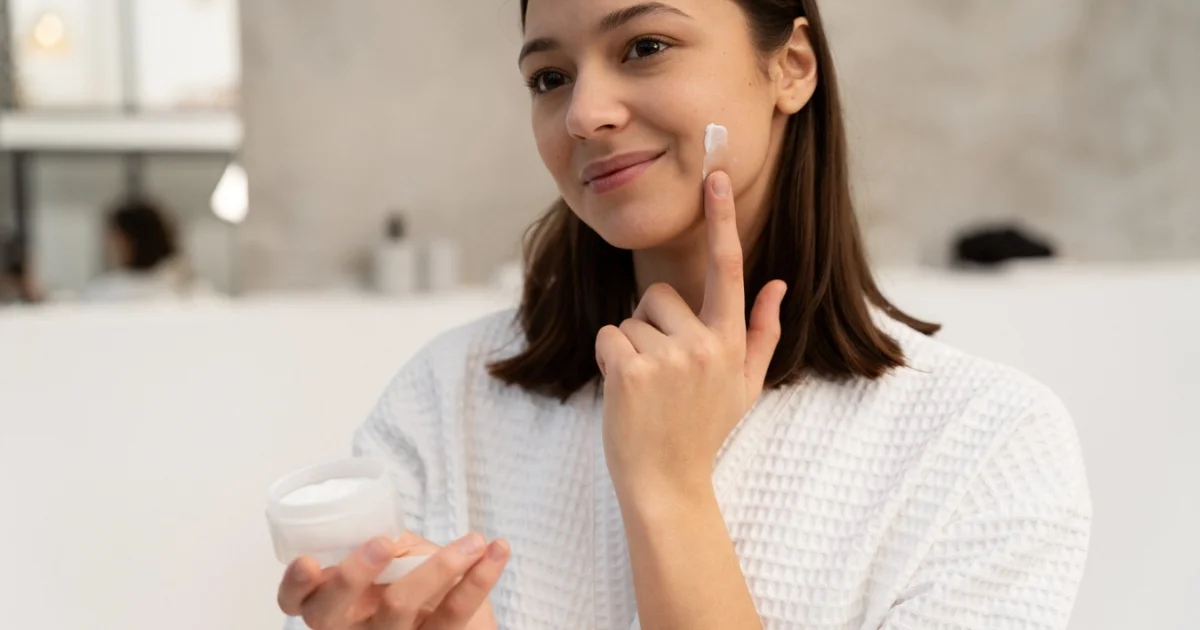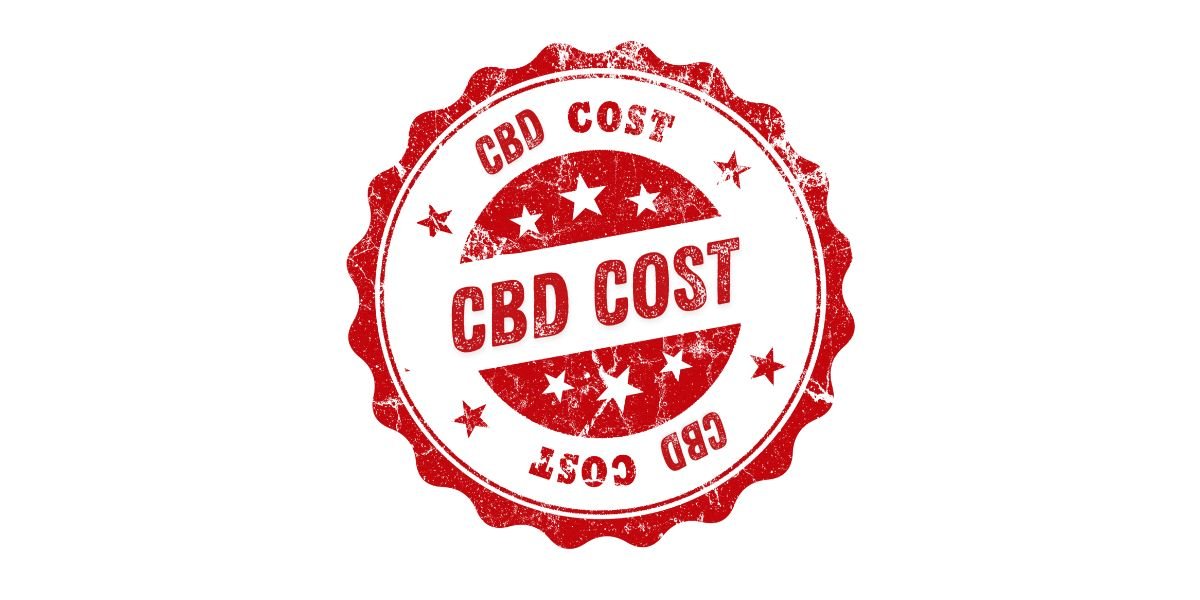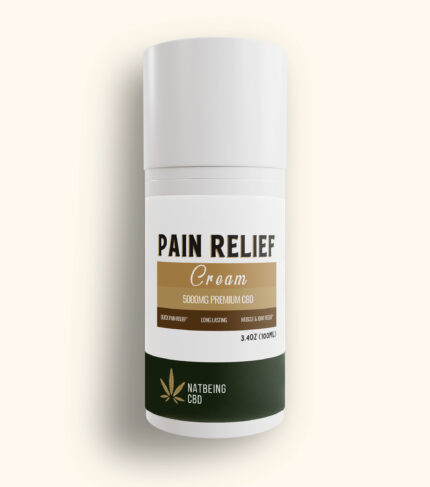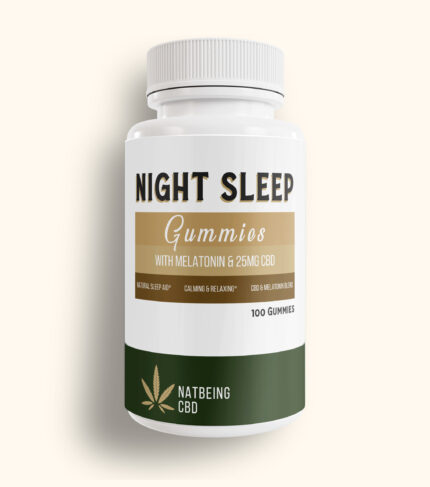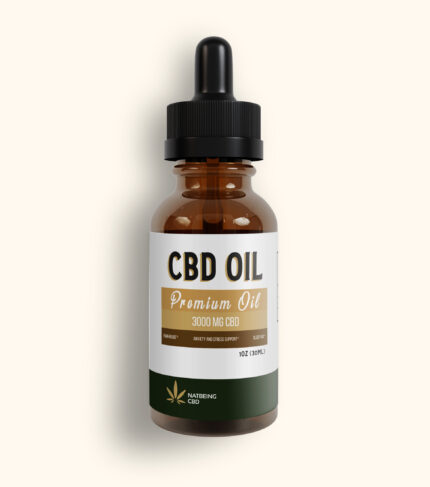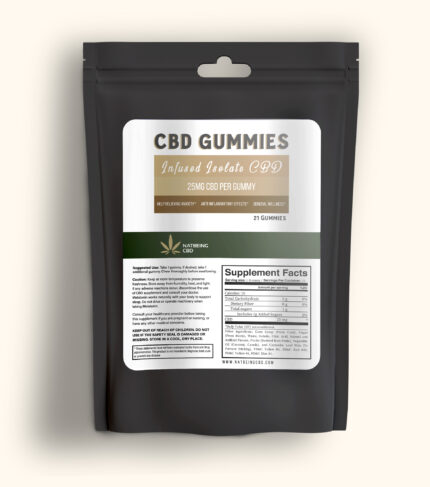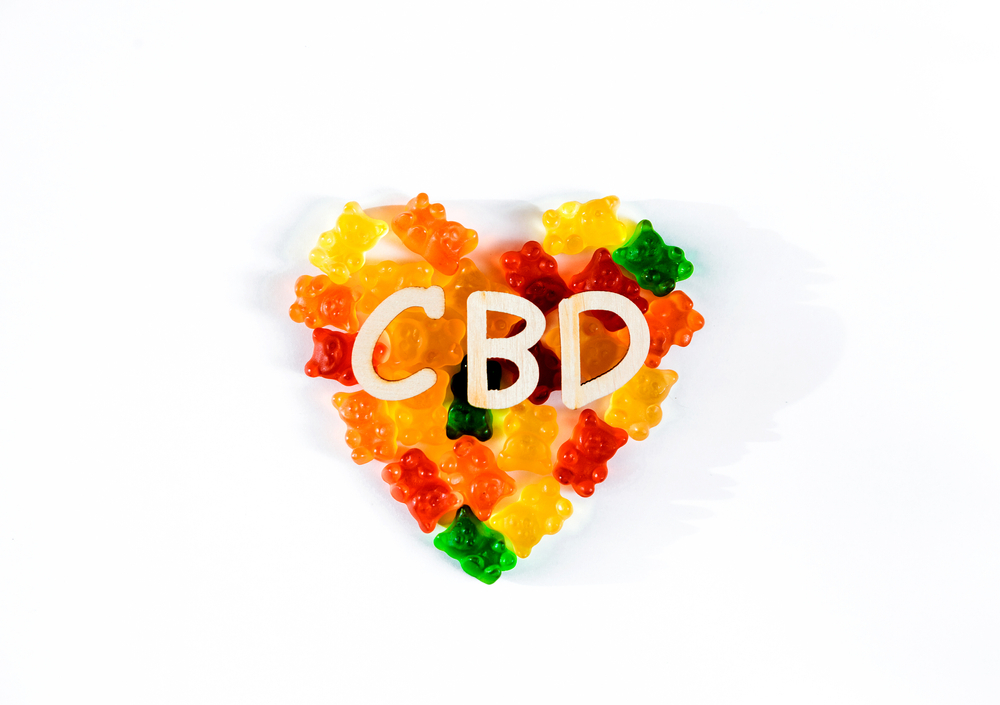
Blog
Everywhere you look, new products appear on shelves, from oils and gummies to vapes and capsules. Among these, two names are becoming especially popular: Delta-8 THC and Delta-9 THC.
They sound similar, and in some ways, they are. Both come from the same plant, both can make you feel relaxed or euphoric, and both are cannabinoids, natural compounds that interact with your body’s endocannabinoid system.
But while they may look alike on paper, Delta-8 and Delta-9 have very different effects, legal rules, and uses. Understanding these differences is important, especially if you’re thinking about trying either of them for relaxation, stress relief, or overall wellness.
This complete guide will help you understand both forms of THC in simple, easy words. You’ll learn what they are, how they work, what makes them unique, their benefits, safety, and which one might be better for you.
What Is THC and Why Does It Matter?
THC stands for Tetrahydrocannabinol, the main active ingredient in cannabis that causes the feeling of being “high.” It’s one of over 100 cannabinoids found in the plant, but it’s the most well-known because of its psychoactive effects.
However, THC isn’t just one molecule, it has different forms (isomers), which have similar structures but behave differently inside the body.
The two most common are:
- Delta-9 THC, the well-known and naturally abundant compound found in marijuana.
- Delta-8 THC, a less intense version, found in small amounts in hemp.
That one tiny change in their molecular structure, the placement of a double bond, changes everything: how strong they feel, how long they last, and even whether they’re legal or not.
The Chemistry Behind Delta-8 and Delta-9
Let’s make the science part super simple.
Imagine THC molecules as small puzzle pieces. Delta-8 and Delta-9 have the same number of pieces, but one of them fits differently. In Delta-9, the chemical bond is on the ninth carbon atom. In Delta-8, it’s on the eighth.
That one shift makes Delta-8 slightly more stable and less reactive, which means it gives a milder and smoother experience compared to Delta-9.
So even though both are THC, the small difference changes the way they interact with your brain’s receptors.
How THC Works in the Body
Your body has a natural system called the endocannabinoid system (ECS). This system helps maintain balance, it affects mood, pain, appetite, sleep, and memory.
When you take THC (either Delta-8 or Delta-9), it interacts with CB1 and CB2 receptors in your brain and nervous system. These receptors are like tiny locks, and THC acts as the key that fits in them.
When THC binds to CB1 receptors in your brain, it changes how you feel, giving you sensations like relaxation, euphoria, or sometimes drowsiness.
Delta-9 binds more strongly, causing a more intense high. Delta-8 binds more gently, giving a calmer, clearer effect.
So, the difference isn’t just chemistry, it’s about how your brain responds to each version.
Where They Come From
Delta-9 THC is naturally present in high amounts in marijuana. You can find it directly in the plant, so it’s easily extracted.
Delta-8 THC, on the other hand, is found only in tiny traces. That’s why most Delta-8 products are made from CBD (Cannabidiol) extracted from hemp. Scientists convert CBD into Delta-8 through a safe chemical process.
This conversion allows companies to create legal Delta-8 THC products under the 2018 Farm Bill, as long as they come from hemp and contain less than 0.3% Delta-9 THC.
Delta-9 THC: The Classic Compound
When you think of cannabis or marijuana, you’re thinking of Delta-9 THC. It’s been known for centuries and is responsible for the traditional “high” that most people associate with cannabis use.
It’s potent, fast-acting, and long-lasting. When you consume Delta-9, you may feel happy, giggly, calm, or even sleepy. Some people find it helps relieve pain or stimulate appetite.
But because it’s so strong, it can also cause side effects like anxiety, paranoia, or racing thoughts, especially in large doses or for people new to THC.
That’s why many people say Delta-9 feels more like a rollercoaster: thrilling, but sometimes too intense.
Delta-8 THC: The Milder Alternative
Delta-8 THC is like the calm cousin of Delta-9. It gives you many of the same benefits, relaxation, pain relief, better sleep, but without the overwhelming high.
People often describe Delta-8 as clear-headed and body-focused. It’s perfect for those who want to unwind but still stay in control.
That’s why Delta-8 is often called the “functional THC.” You can take it and still focus on your day, do light work, or relax without feeling completely out of touch.
For many, it’s the ideal balance between wellness and mild euphoria
The Effects — What You Actually Feel
The real question most people have is: How do Delta-8 and Delta-9 make you feel different?
Let’s talk about the experience.
When you take Delta-9 THC, the effects can come fast and strong. You may feel:
- A rush of euphoria
- Heightened senses (colors, sounds, tastes feel stronger)
- Deep relaxation
- Laughter or talkativeness
But, especially at higher doses, you might also feel:
- Anxiety or nervousness
- Rapid heart rate
- Confusion or paranoia
With Delta-8 THC, the feeling is much smoother. People usually report:
- Gentle euphoria
- Relaxed body and calm mind
- Light mental clarity
- Mild giggles or mood lift
- No racing thoughts
The difference can be compared to beverages: if Delta-9 is a strong cocktail, Delta-8 is a light glass of wine. Both can relax you, but one hits much harder.
Timing and Duration
Both Delta-8 and Delta-9 go through your body differently depending on how you consume them.
- Vapes kick in within minutes and last about 2–3 hours.
- Edibles take longer (30–90 minutes) but can last 6–8 hours.
- Tinctures work in about 20–40 minutes.
In general, Delta-8 takes a bit longer to start working but gives a longer, steadier experience. Delta-9 hits quickly and fades faster, often with a stronger “come down.”
So, if you prefer a slower, smoother high, Delta-8 is your friend. If you want fast and strong effects, Delta-9 will get you there.
The Legal Status of Delta-8 THC
Delta-8 THC comes mainly from hemp, not marijuana. Hemp is a type of cannabis plant that contains less than 0.3% Delta-9 THC. In 2018, the U.S. Farm Bill made hemp and all of its derivatives legal at the federal level, as long as they stay below that 0.3% Delta-9 limit.
Because of this, companies started creating Delta-8 from hemp-derived CBD. On paper, it was legal because it didn’t come from marijuana. That’s how Delta-8 quickly became one of the hottest new products in the wellness market.
However, some states later noticed how popular it became and decided to regulate or ban it. As of now, some U.S. states have restricted or prohibited Delta-8, even though it remains federally legal.
So if you’re thinking about buying or using Delta-8, it’s very important to check your local laws. What’s legal in one state may not be legal in another.
The Legal Status of Delta-9 THC
Delta-9 THC, on the other hand, is the classic cannabis compound that gets people high. It’s heavily regulated and remains illegal under federal law in the United States.
However, many states have their own rules. Some allow medical marijuana, and others have fully legalized recreational cannabis. In those states, Delta-9 products are available in licensed dispensaries, tested, and controlled.
In states where marijuana is still illegal, only hemp products (like Delta-8 or CBD) are legally sold.
It’s a bit confusing but the short version is:
- Delta-8 = Federally legal (some states banned it).
- Delta-9 = Federally illegal (legal in some states).
This difference in legality is a big reason why Delta-8 became popular so quickly. People who couldn’t legally buy Delta-9 found Delta-8 as a more accessible option.
Safety of Delta-8 vs Delta-9 THC
When it comes to your health and safety, both cannabinoids can be safe when used correctly but that depends a lot on product quality.
Because Delta-8 is made through a chemical process (converting CBD into Delta-8), it’s important that it’s produced in clean labs and properly purified. If not, leftover solvents or impurities could remain in the product.
That’s why experts always recommend buying lab-tested Delta-8 products. Reputable brands post third-party lab reports showing that their products are pure, clean, and safe.
Delta-9 products from licensed dispensaries are also tested for safety, pesticides, and heavy metals. If you buy legally, they are generally safe.
The biggest safety concern comes from unregulated or low-quality Delta-8 being sold online or in gas stations without lab testing. So always buy from a trusted source.
Possible Side Effects
Even though Delta-8 and Delta-9 are natural, they can still cause side effects, especially if you take too much.
Some people may experience:
- Dry mouth
- Red or tired eyes
- Dizziness
- Slow reaction time
- Increased appetite (“the munchies”)
- Sleepiness
Delta-9 is more likely to cause anxiety, paranoia, or panic in sensitive users. Delta-8 is less likely to trigger those feelings, which is why many users call it the “gentle THC.”
If you’re new to THC, start small. Both compounds affect everyone differently depending on your body chemistry, mood, and how much food you’ve eaten.
How to Use and Dose Delta-8 and Delta-9
There’s no universal dose that works for everyone. The right amount depends on your body weight, tolerance, and how you consume it (gummy, vape, oil, etc.).
Let’s look at some general guidelines in simple words.
For beginners:
- Start with 5–10 mg of Delta-8 or Delta-9.
- Wait at least 90 minutes before taking more (especially with edibles).
Intermediate users:
- 15–25 mg for a balanced experience.
Advanced users:
- 30 mg or more only if you’re experienced and comfortable.
Remember, edibles can take longer to kick in. It’s easy to think nothing’s happening and take more, which can lead to a stronger effect than expected. Always be patient.
Vapes act faster, usually within minutes, and wear off sooner. Oils and tinctures fall somewhere in between.
Mixing with Food or Drink
THC binds to fat molecules, so consuming it with food that contains healthy fats (like nuts, cheese, or avocado) can make the effects stronger and longer-lasting.
If you take edibles on an empty stomach, they might hit faster but can also feel too strong. It’s better to eat something light before use.
And as always, never mix THC with alcohol or other drugs, it can cause dizziness or nausea.
Tolerance and Dependence
When you use THC regularly, your body builds tolerance, meaning you need more to feel the same effects.
Delta-9 users tend to build tolerance faster because of the compound’s strength. Delta-8, being milder, builds tolerance more slowly, but it can still happen.
Taking short breaks (called “tolerance breaks”) helps reset your body’s sensitivity and keeps the effects enjoyable without needing large doses.
Who Should Avoid THC Products
Even though both Delta-8 and Delta-9 are natural, they’re not for everyone.
You should avoid using these products if you:
- Are under 21 years old
- Are pregnant or breastfeeding
- Have serious heart problems or low blood pressure
- Take prescription medications that interact with THC
- Need to pass drug tests for work or school
Even though Delta-8 is legal, most drug tests cannot tell the difference between Delta-8 and Delta-9, they’ll both show up as “THC positive.”
So if you have upcoming tests, it’s safer to avoid all THC products, even hemp-based ones.
How Long They Stay in Your System
THC stays in your body longer than most people expect. The “high” feeling may fade after a few hours, but traces of THC can remain in your fat cells for days or even weeks.
- Occasional users: detectable for 3–7 days
- Regular users: up to 30 days or more
That’s why even if you feel completely sober, THC might still show up in a test.
Are Delta-8 and Delta-9 Addictive?
Neither Delta-8 nor Delta-9 is considered physically addictive like nicotine or hard drugs. But, like anything that affects your mood, some people may develop a habit or emotional dependence.
For example, if you use it every day to relax or sleep, your body may begin to expect it. That’s why moderation is important, use THC as a tool, not a need.
Taking breaks helps your body stay balanced and ensures the effects stay positive.
Product Quality and Testing
Here’s a simple rule: Always look for third-party lab testing.
Good brands will show a Certificate of Analysis (COA) that lists:
- THC and CBD levels
- Absence of heavy metals or pesticides
- Confirmation that the product is safe to consume
Avoid products that don’t provide test results. If you buy from a local store or gas station and can’t find any lab report, that’s a red flag.
Your safety depends on knowing exactly what’s in the product.
Delta-8 and Delta-9 in Everyday Use
Some people use Delta-9 for stronger relief from pain or stress, while others prefer Delta-8 for a gentle boost to unwind after a long day.
Delta-8 is often used in the evening to calm down, improve sleep, or ease mild pain. Delta-9 is used more recreationally for deeper relaxation, creativity, or full-body relief.
Medical, Wellness, and Everyday Benefits of Delta-8 and Delta-9 THC
Now that you know what Delta-8 and Delta-9 are, how they work, and their legal status, let’s explore what really matters to most people, how they can help you feel better.
Both cannabinoids are known to provide a variety of effects that may support your body and mind. While research is still developing, thousands of users and early studies suggest that Delta-8 and Delta-9 can offer natural relief for stress, pain, sleep problems, and more.
Let’s take a closer look at these benefits simply and clearly.
1. Stress and Anxiety Relief
Modern life can be stressful, long work hours, screens, traffic, and constant pressure can drain your energy. Many people turn to THC products for a natural way to relax.
Delta-9 THC is known to deeply relax the mind. It can help people feel light, happy, and calm. However, at high doses, it can sometimes increase anxiety, especially in beginners. That’s because it strongly activates the brain’s receptors, which can make your thoughts race or feel intense.
Delta-8 THC, on the other hand, is much gentler. It provides the same sense of peace but without the mental heaviness or paranoia. Many users describe Delta-8 as giving a smooth, clear calm, enough to ease the mind, yet not enough to make you feel lost.
This is why Delta-8 is often preferred for anxiety management or after-work relaxation. It’s a peaceful way to unwind without feeling overwhelmed.
2. Pain and Inflammation Relief
Pain is one of the main reasons people explore cannabis or hemp products. Both Delta-8 and Delta-9 can help reduce discomfort because THC interacts with the CB1 and CB2 receptors in the nervous system, the same receptors involved in pain signaling.
Delta-9 THC has been used for decades to help manage chronic pain, arthritis, and nerve pain. Its strong binding power can help reduce the intensity of pain signals in the brain.
Delta-8 THC, while milder, also shows promise in reducing pain and inflammation, especially for people who want relief without feeling too high. Many users say it helps with sore muscles, headaches, and body aches after long days.
People recovering from workouts, physical labor, or injury often use Delta-8 gummies or tinctures to relax their muscles and feel more comfortable.
3. Better Sleep and Rest
Sleep problems are extremely common today. Stress, noise, or an overactive mind can make it hard to fall asleep or stay asleep.
THC interacts with the part of your brain that controls relaxation and dreaming. It can help you fall asleep faster and stay asleep longer.
Delta-9 THC is stronger and can make you feel drowsy faster. But for some people, the strong high can be distracting before bed.
Delta-8 THC provides a smoother, slower relaxation that gently prepares you for rest. It doesn’t knock you out, it helps you drift naturally into sleep.
That’s why many people say Delta-8 is perfect for nighttime use. It helps you relax your body and quiet your thoughts, so you wake up refreshed instead of groggy.
4. Appetite Stimulation
You’ve probably heard of “the munchies” , a common side effect of THC.
Delta-9 THC is known to strongly increase appetite, which can be helpful for people dealing with medical issues that reduce hunger, such as chemotherapy or chronic illness.
Delta-8 THC also increases appetite but in a lighter way. Instead of an intense craving, it may gently remind you to eat or make food taste better.
Some people use Delta-8 gummies or oils to balance appetite, especially if stress makes them lose interest in eating. It’s another reason Delta-8 is becoming a wellness favorite.
5. Mood Boost and Euphoria
Both Delta-8 and Delta-9 can lift your mood by increasing dopamine, a brain chemical that makes you feel happy and motivated.
Delta-9 provides a stronger emotional lift, sometimes causing laughter, deep thinking, or a “creative spark.” This is why artists and musicians have often turned to cannabis for inspiration.
Delta-8, on the other hand, brings a lighter mood boost. You may feel content, calm, or pleasantly cheerful. It’s more about peace of mind than intense euphoria.
For people who want to feel good without losing focus, Delta-8 is an ideal choice.
6. Nausea and Digestive Support
One of the first approved medical uses of THC was for nausea relief in cancer patients undergoing chemotherapy. Delta-9 THC works very well for this, but it can also cause a strong high.
Early studies suggest that Delta-8 can help reduce nausea too, with fewer psychoactive effects. It’s sometimes used by people with motion sickness or digestive discomfort.
That’s why many consider Delta-8 to be a gentle alternative for people who want comfort without heavy intoxication.
7. Focus and Mental Clarity
One of the surprising effects of Delta-8 is how clear-headed it feels. While Delta-9 can sometimes make thoughts scattered or dreamy, Delta-8 tends to sharpen focus for some users.
That’s why it’s sometimes called the “daytime THC.” It helps you relax just enough to feel calm but still allows you to stay active, focused, and productive.
Writers, designers, or people with creative jobs often enjoy small doses of Delta-8 during the day to ease stress and boost flow.
8. Neuroprotective and Brain Benefits
Early research also suggests that cannabinoids like Delta-8 and Delta-9 may have neuroprotective properties, meaning they can help protect the brain from stress and aging.
They may encourage new neuron growth and help regulate brain activity. This is still being studied, but many scientists believe THC, in controlled doses, could play a role in long-term brain health and emotional balance.
9. Social and Emotional Comfort
Beyond physical benefits, THC can also make people feel more open and social.
Delta-9 THC can make you chatty, energetic, or emotionally expressive, though in some cases, it may increase self-awareness or nervousness in crowds.
Delta-8 THC helps you relax socially without feeling anxious. It’s a favorite among people who feel tense at gatherings or want to wind down with friends without overdoing it.
It’s like taking the edge off, relaxing your body while keeping your confidence and focus intact.
10. Everyday Relaxation and Recovery
Not every use of THC needs to be medical. Sometimes, people just want a natural way to unwind after a long, tiring day.
A small Delta-8 gummy or vape session can feel like a gentle evening ritual — easing you into relaxation, helping you forget stress, and improving your mood.
For those who prefer stronger relief or a deeper experience, Delta-9 does the job. But Delta-8 is great for anyone who wants calm without cloudiness.
How They Compare in Everyday Life
Here’s how Delta-8 and Delta-9 often fit into different lifestyles:
- Delta-8 THC: Calm, clear, functional. Great for evenings, weekends, or light relaxation.
- Delta-9 THC: Stronger, heavier, more euphoric. Great for rest days, creativity, or deep body relief.
For many people, Delta-8 becomes part of their wellness routine, while Delta-9 is something they use occasionally for deeper relaxation or special moments.
Why Some People Choose One Over the Other
Every person reacts differently. Some people find Delta-9 too strong or unpredictable, while others feel that Delta-8 isn’t strong enough.
Here’s a simple summary of user preferences:
- People who are new to THC usually start with Delta-8.
- People who are experienced or seeking stronger effects prefer Delta-9.
- People who want to relax but stay productive lean toward Delta-8.
- People using THC for strong pain relief often rely on Delta-9.
Neither is right or wrong, it’s all about how you want to feel and what your body needs.
The Growing Research on Delta-8 and Delta-9
Because cannabis research was limited for many years, scientists are only recently exploring how different forms of THC affect humans.
Early findings show that both compounds can:
- Reduce inflammation
- Support better sleep
- Calm anxiety
- Ease chronic pain
However, Delta-8 may have extra potential for those sensitive to Delta-9. It offers similar relief without the same level of psychoactive intensity.
More clinical studies are being conducted every year to confirm what millions of users already know from experience, that cannabinoids can support natural wellness when used responsibly.
The Role of CBD in Balancing THC
A lot of modern products combine CBD with Delta-8 or Delta-9. CBD (Cannabidiol) doesn’t cause a high, instead, it balances and softens the effects of THC.
When mixed together, CBD can reduce the chances of anxiety, paranoia, or overthinking. That’s why many people prefer Delta-8 + CBD blends for daily relaxation.
If you ever felt that pure Delta-9 was too strong, try products that mix CBD, it often creates the perfect harmony.
A Note About Long-Term Health
Used moderately and safely, neither Delta-8 nor Delta-9 causes lasting harm for most healthy adults.
Problems usually arise only from overuse, low-quality products, or improper dosing.
Always start small, stay hydrated, and use THC as part of a balanced lifestyle, not a replacement for healthy habits.
Just like with coffee, moderation keeps the experience pleasant.
Products, Dosage, and Safe Use of Delta-8 and Delta-9 THC
Now that we’ve explored how Delta-8 and Delta-9 affect your body and mind, let’s talk about something very practical, how people actually use them in everyday life.
Today, there are many ways to enjoy these cannabinoids. From gummies to oils, vapes to chocolates, you can pick the one that suits your comfort level and lifestyle.
But before you buy or try, it’s important to know how each type works, how much to take, and how to stay safe.
Popular Product Types
a. Gummies
Gummies are one of the most popular THC products. They look like regular candies, but each one contains a measured dose of Delta-8 or Delta-9.
They’re easy to use, just eat one and wait. The effects usually start within 45–90 minutes and can last up to 6 hours.
Gummies are perfect for beginners because:
- They taste good
- They come in consistent doses
- There’s no smoke or smell
However, the main mistake beginners make is taking more too soon. Gummies take time to kick in. If you eat more before the first dose starts working, the effects can become too strong later.
b. Vape Cartridges
Vapes are popular because they work fast. You inhale vaporized Delta-8 or Delta-9 oil, and the effects begin within minutes.
Vaping gives you more control. You can take one puff, wait a minute, and see how you feel before taking another.
It’s great for people who want quick results for stress, focus, or relaxation.
However, make sure to buy lab-tested vapes, poor-quality ones can contain harmful additives. Always check that the vape oil is from a trusted source.
c. Oils and Tinctures
Tinctures are THC oils that you drop under your tongue. This allows the THC to enter your bloodstream quickly, usually within 20–40 minutes.
You can measure your dose easily using the dropper, which is great for precise control.
Some people add tincture drops to drinks or food, but that delays the effect a little.
Tinctures are popular among people who want a balanced and smooth experience, neither too fast like vaping nor too slow like gummies.
d. Capsules and Tablets
Capsules are like any supplement, easy to swallow and simple to track. They’re discreet, meaning you can take them anywhere without smell or taste.
However, like gummies, they take about 45–90 minutes to work. Capsules are good for those who prefer a routine, like taking a morning vitamin.
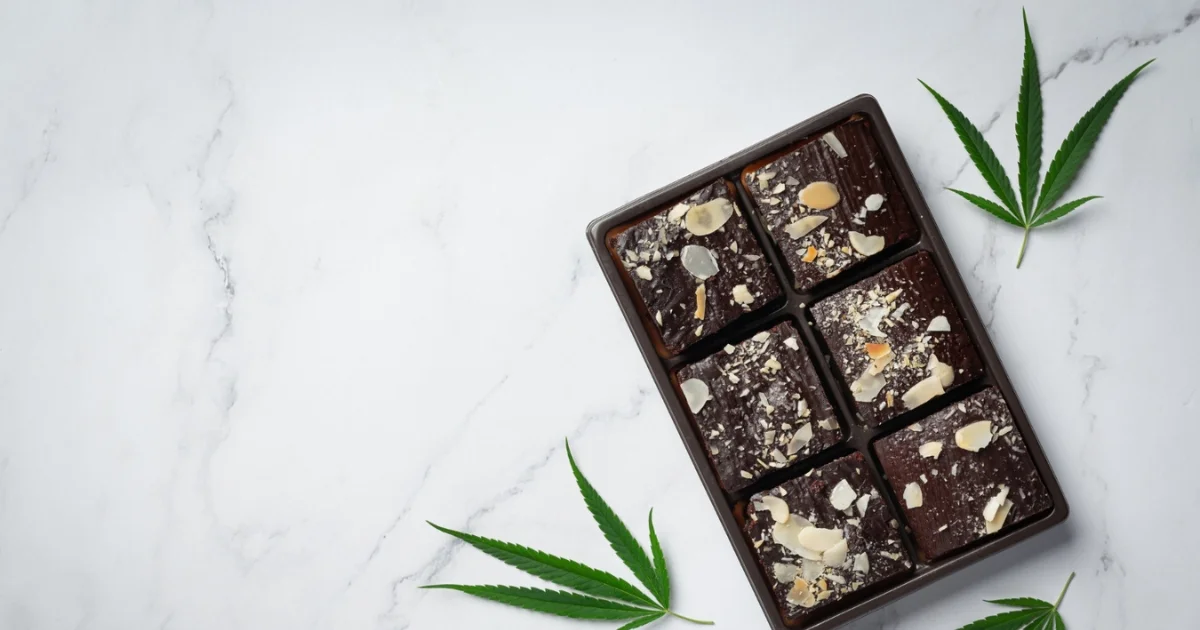
e. Chocolates, Drinks, and Other Edibles
The THC market keeps growing with creative products, chocolates, cookies, drinks, and even syrups.
These make the experience fun and flavorful. But remember, with all edibles, the delay in effect means you should never take extra until you know how you feel.
f. Topicals and Creams
Not all THC products are for the mind, some are for the body.
Topical creams, balms, and lotions infused with Delta-8 or Delta-9 can be applied directly to sore muscles, joints, or skin.
They don’t usually cause a “high,” but they can help reduce pain and inflammation locally. Many athletes or people with arthritis prefer topicals for targeted relief.
How to Find Quality Products
Because THC products vary a lot in purity and strength, quality is everything. Here’s how to find good ones without using bullet overload.
When shopping online or in stores, always look for products that are:
Lab-tested by third parties.
The package or website should show a Certificate of Analysis (COA) proving the product’s ingredients and purity.
Made from hemp, not synthetic chemicals.
Delta-8 should come from real hemp plants through clean extraction, not from unsafe lab processes.
Clearly labeled.
The packaging should list dosage (like “25mg Delta-8 per gummy”) and include safety information.
Sold by a trusted company.
Avoid products with no reviews or vague descriptions. Reliable brands are transparent about how they make and test their products.
Understanding Dosage
THC affects everyone differently. Factors like age, weight, tolerance, and metabolism matter.
Here’s a simple guide to get started (for educational purposes):
- Beginner dose: 5–10 mg of Delta-8 or 2–5 mg of Delta-9.
- Medium dose: 15–25 mg (for moderate users).
- Strong dose: 30–50 mg (for experienced users only).
Always wait at least two hours after taking an edible before deciding if you need more.
If you ever feel uncomfortable, drink water, rest, and remember the effects will fade naturally over time.
Tips for Safe and Pleasant Use
- Stay hydrated. THC can cause dry mouth, so drink water.
- Avoid driving or operating machines while high.
- Don’t mix with alcohol. It increases dizziness.
- Use in a calm, familiar place. Comfort helps prevent anxiety.
- Keep products away from kids and pets.
- Store in a cool, dark place to keep potency fresh.
Using THC should feel enjoyable, not stressful and following these simple steps makes it safer and smoother.
Combining Delta-8, Delta-9, and CBD
Many modern wellness brands create hybrid formulas that mix cannabinoids together.
For example:
- Delta-8 + CBD: Gives relaxing calm without being too heavy.
- Delta-9 + CBD: Balances the strong high with smoother focus.
- Delta-8 + Delta-9: Offers a mix of clarity and euphoria.
If you find that one cannabinoid alone feels too strong or too mild, a mix might be your perfect match.
Edible vs. Inhaled: Which Is Better?
There’s no “best” method, only what fits your lifestyle.
- Edibles (like gummies, chocolates, and drinks) take longer to kick in but last longer. Great for all-day relief.
- Vapes and tinctures act fast but fade sooner. Good for quick calm or focus.
If you’re new, start with edibles because they’re easier to measure. Once you understand your tolerance, you can explore faster methods like vaping.
What Happens if You Take Too Much?
Sometimes beginners take too much THC accidentally. It’s not dangerous, but it can feel uncomfortable. You might feel dizzy, sleepy, or anxious.
Here’s what to do:
- Find a quiet place and rest.
- Drink water or have a snack.
- Distract yourself with calm music or a show.
- Avoid panicking; it always wears off within a few hours.
Next time, take a smaller amount and write down what works for you. Everyone’s “perfect dose” is unique.
Why Quality and Testing Matter So Much
Because Delta-8 is often made by converting CBD into THC through a chemical process, low-quality manufacturers may leave behind unsafe residues or solvents.
That’s why third-party testing is vital. You want to see results showing:
- No heavy metals
- No pesticides
- No synthetic additives
- Correct THC levels
If you can’t find testing info, skip that product. Your health and safety always come first.
Building Tolerance and Taking Breaks
Like caffeine or sugar, your body can build tolerance to THC over time. That means you may need more to feel the same effects.
To avoid this, take short breaks every few weeks. Even a few days without THC can reset your tolerance and make small doses feel effective again.
This also keeps your experience more enjoyable and affordable.
Mixing THC with Everyday Wellness Habits
Many people now include THC as part of a balanced lifestyle just like vitamins, meditation, or exercise.
For example:
- A small Delta-8 gummy after yoga can deepen relaxation.
- A few drops of tincture at night can support better sleep.
- A Delta-9 edible on weekends can help relieve pain or spark creativity.
Used thoughtfully, it can enhance your natural wellness routine instead of replacing it.
Legal Shopping and Responsible Use
Always check your local laws before buying or using THC. Even if hemp-derived Delta-8 is legal federally in the U.S., some states restrict it.
Buy from licensed, transparent brands preferably those that clearly list where their hemp is grown and processed.
Remember, using THC responsibly means:
- Respecting the laws
- Keeping doses moderate
- Avoiding underage use
When used wisely, Delta-8 and Delta-9 can fit naturally into a mindful lifestyle.
Experience, Side Effects, and Where to Buy
By now, you have a full understanding of what Delta-8 and Delta-9 THC are, how they work, and what benefits they bring.
Let’s explore what you can expect from each in real, simple terms.
1. The Feeling: Delta-8 vs Delta-9
Both Delta-8 and Delta-9 THC connect with your body’s endocannabinoid system, the network that helps control mood, pain, sleep, and stress.
But because they attach to receptors in slightly different ways, the experience feels unique.
Delta-8 THC: Calm, Clear, and Centered
People often describe Delta-8 as a clear and peaceful high. It’s relaxing but not overpowering.
You feel light, balanced, and calm like a soft wave that smooths away tension.
Your thoughts stay clear, and you can still focus, read, or enjoy conversation.
That’s why Delta-8 is often called the “functional THC.” It’s ideal for evenings, quiet weekends, or simply unwinding after work.
If you want to experience this gentle calm, you can try 1200mg Delta 8 THC Oil from Natbeing CBD, a high-quality, lab-tested formula designed for smooth, natural relaxation.
Just a few drops can help ease stress, relax your body, and support restful sleep without feeling heavy or dizzy.
Delta-9 THC: Strong, Deep, and Euphoric
Delta-9, on the other hand, feels stronger and more emotional. It’s the classic cannabis experience more intense, colorful, and body-focused.
You may feel warm, giggly, thoughtful, or creative. Sounds and colors can feel richer, and time may seem slower.
This can be a beautiful, uplifting experience but for beginners, it can also feel overwhelming if the dose is too high.
That’s why it’s important to start small and choose quality products.
If you want to experience a pleasant, balanced Delta-9 effect, try the Delta 9 THC Gummies from Natbeing CBD.
They’re crafted for smooth, enjoyable euphoria perfect for relaxing at home or enhancing your weekend mood, without harsh side effects.
Long-Term Safety and Habits
Most research suggests that moderate, responsible THC use is safe for healthy adults.
Problems usually appear only when people use too much too often, or when they buy untested products.
To keep your routine balanced:
- Don’t rely on THC daily for every emotion.
- Take short breaks (a few days or weeks) to reset tolerance.
- Choose clean, lab-tested products like those from Natbeing CBD, which ensures purity and safety.
When used mindfully, Delta-8 and Delta-9 can be part of a healthy, relaxing lifestyle, not a risky habit.
Combining Both for Balance
Some users like to mix Delta-8 and Delta-9 for a balanced experience, the calm of Delta-8 with the spark of Delta-9.
For example, taking a small Delta 9 Gummy and a few drops of Delta 8 Oil can create harmony between body and mind.
Just be careful with the total dosage. Always start small when combining both.
Why “Natbeing CBD” Is a Trusted Source
In today’s market, it’s hard to find clean and consistent products. That’s why choosing a brand like Natbeing CBD makes a difference.
Here’s why users trust them:
- Lab-tested formulas for safety and purity.
- Accurate strength in every product (no guessing).
- Smooth and natural flavors that make daily use enjoyable.
- Transparency ingredients and testing info are easy to find.
Whether you’re new to THC or already experienced, Natbeing CBD offers reliable products that support relaxation, focus, and overall wellness.
FAQs
1. What is the difference between Delta-8 and Delta-9 THC?
Delta-8 is a milder form of THC that gives a calm, clear-headed effect, while Delta-9 is stronger and produces a more euphoric, intense high.
2. Are Delta-8 and Delta-9 legal?
Delta-8 is federally legal in the U.S. if it’s derived from hemp and contains less than 0.3% Delta-9 THC. Delta-9’s legality depends on state cannabis laws.
3. Which one is better for beginners?
Delta-8 is often recommended for beginners because it’s gentler and less likely to cause anxiety or paranoia.
4. Can Delta-8 or Delta-9 help with sleep?
Yes. Delta-8 promotes calm and relaxation for easier sleep, while Delta-9 can help with deeper rest, especially at higher doses.
5. What forms do Delta-8 and Delta-9 come in?
They are available as gummies, oils, tinctures, vapes, capsules, chocolates, drinks, and topical creams for targeted relief.
6. Can I use Delta-8 or Delta-9 for pain relief?
Yes. Both can help reduce pain and inflammation, with Delta-9 typically offering stronger relief and Delta-8 providing milder support.
7. How long does Delta-8 stay in your system for a urine test?
Delta-8 THC can show up in a urine test because most tests detect THC metabolites, not specifically Delta-8. It usually stays in the system for 2–30 days, depending on factors like metabolism, frequency of use, body fat, and dosage. Occasional users may test negative sooner, while regular users may test positive for a longer time.
Conclusion
Choosing between Delta-8 and Delta-9 comes down to personal preference and how your body responds. Both offer unique experiences and benefits that can enhance your sense of balance and well-being. Delta-8 brings a calm, relaxed clarity that many people enjoy for stress relief or unwinding after a long day. Delta-9, on the other hand, offers a stronger and more uplifting feeling that can boost creativity and mood.
If you’re unsure which one is right for you, start slow and pay attention to how you feel. Everyone’s body chemistry is different, so what works perfectly for one person may feel different for another. The most important thing is to choose safe, high-quality products from trusted sources that value purity and transparency.
At Natbeing CBD, you can begin your journey with confidence. Try the 1200mg Delta 8 THC Oil for calm relaxation or the Delta 9 THC Gummies for a joyful, balanced lift. Both are crafted with care to help you find comfort, focus, and natural wellness in your everyday life.
Contents
- 1 What Is THC and Why Does It Matter?
- 2 The Chemistry Behind Delta-8 and Delta-9
- 3 How THC Works in the Body
- 4 Where They Come From
- 5 Delta-9 THC: The Classic Compound
- 6 Delta-8 THC: The Milder Alternative
- 7 The Effects — What You Actually Feel
- 8 Timing and Duration
- 9 The Legal Status of Delta-8 THC
- 10 The Legal Status of Delta-9 THC
- 11 Safety of Delta-8 vs Delta-9 THC
- 12 Possible Side Effects
- 13 How to Use and Dose Delta-8 and Delta-9
- 14 Mixing with Food or Drink
- 15 Tolerance and Dependence
- 16 Who Should Avoid THC Products
- 17 How Long They Stay in Your System
- 18 Are Delta-8 and Delta-9 Addictive?
- 19 Product Quality and Testing
- 20 Delta-8 and Delta-9 in Everyday Use
- 21 Medical, Wellness, and Everyday Benefits of Delta-8 and Delta-9 THC
- 22 1. Stress and Anxiety Relief
- 23 2. Pain and Inflammation Relief
- 24 3. Better Sleep and Rest
- 25 4. Appetite Stimulation
- 26 5. Mood Boost and Euphoria
- 27 6. Nausea and Digestive Support
- 28 7. Focus and Mental Clarity
- 29 8. Neuroprotective and Brain Benefits
- 30 9. Social and Emotional Comfort
- 31 10. Everyday Relaxation and Recovery
- 32 How They Compare in Everyday Life
- 33 Why Some People Choose One Over the Other
- 34 The Growing Research on Delta-8 and Delta-9
- 35 The Role of CBD in Balancing THC
- 36 A Note About Long-Term Health
- 37 Products, Dosage, and Safe Use of Delta-8 and Delta-9 THC
- 38 Popular Product Types
- 39 How to Find Quality Products
- 40 Understanding Dosage
- 41 Tips for Safe and Pleasant Use
- 42 Combining Delta-8, Delta-9, and CBD
- 43 Edible vs. Inhaled: Which Is Better?
- 44 What Happens if You Take Too Much?
- 45 Why Quality and Testing Matter So Much
- 46 Building Tolerance and Taking Breaks
- 47 Mixing THC with Everyday Wellness Habits
- 48 Legal Shopping and Responsible Use
- 49 Experience, Side Effects, and Where to Buy
- 50 1. The Feeling: Delta-8 vs Delta-9
- 51 Long-Term Safety and Habits
- 52 Combining Both for Balance
- 53 Why “Natbeing CBD” Is a Trusted Source
- 54 Conclusion
Related posts
How Fast Does CBD Cream 5000mg Work on Sore Muscles?
Menthol and CBD: A Dynamic Duo for Pain Relief
Delta-8 vs Delta-9 THC: Which One Is Right for You?
CBD Cream 5000mg: Powerful Relief for Pain, Muscles & Joints
CBD for Arthritis Pain: What You Should Know
CBD Creams: Made with Hemp Oil for Pain Relief & Joint Support
Understanding Oral CBD vs Topical CBD: Which Works Best for You?
How CBD Cream Supports Your Body’s Natural Balance
CBD Cream for Arthritis Joint Pain: A Natural Way to Find Relief
Is CBD Cream the Secret to Glowing, Healthy Skin?
How CBD Cream Works on Your Skin
CBD Cream Costs: Finding the Perfect Balance Between Price and Quality
Table Of Contents
- 1 What Is THC and Why Does It Matter?
- 2 The Chemistry Behind Delta-8 and Delta-9
- 3 How THC Works in the Body
- 4 Where They Come From
- 5 Delta-9 THC: The Classic Compound
- 6 Delta-8 THC: The Milder Alternative
- 7 The Effects — What You Actually Feel
- 8 Timing and Duration
- 9 The Legal Status of Delta-8 THC
- 10 The Legal Status of Delta-9 THC
- 11 Safety of Delta-8 vs Delta-9 THC
- 12 Possible Side Effects
- 13 How to Use and Dose Delta-8 and Delta-9
- 14 Mixing with Food or Drink
- 15 Tolerance and Dependence
- 16 Who Should Avoid THC Products
- 17 How Long They Stay in Your System
- 18 Are Delta-8 and Delta-9 Addictive?
- 19 Product Quality and Testing
- 20 Delta-8 and Delta-9 in Everyday Use
- 21 Medical, Wellness, and Everyday Benefits of Delta-8 and Delta-9 THC
- 22 1. Stress and Anxiety Relief
- 23 2. Pain and Inflammation Relief
- 24 3. Better Sleep and Rest
- 25 4. Appetite Stimulation
- 26 5. Mood Boost and Euphoria
- 27 6. Nausea and Digestive Support
- 28 7. Focus and Mental Clarity
- 29 8. Neuroprotective and Brain Benefits
- 30 9. Social and Emotional Comfort
- 31 10. Everyday Relaxation and Recovery
- 32 How They Compare in Everyday Life
- 33 Why Some People Choose One Over the Other
- 34 The Growing Research on Delta-8 and Delta-9
- 35 The Role of CBD in Balancing THC
- 36 A Note About Long-Term Health
- 37 Products, Dosage, and Safe Use of Delta-8 and Delta-9 THC
- 38 Popular Product Types
- 39 How to Find Quality Products
- 40 Understanding Dosage
- 41 Tips for Safe and Pleasant Use
- 42 Combining Delta-8, Delta-9, and CBD
- 43 Edible vs. Inhaled: Which Is Better?
- 44 What Happens if You Take Too Much?
- 45 Why Quality and Testing Matter So Much
- 46 Building Tolerance and Taking Breaks
- 47 Mixing THC with Everyday Wellness Habits
- 48 Legal Shopping and Responsible Use
- 49 Experience, Side Effects, and Where to Buy
- 50 1. The Feeling: Delta-8 vs Delta-9
- 51 Long-Term Safety and Habits
- 52 Combining Both for Balance
- 53 Why “Natbeing CBD” Is a Trusted Source
- 54 Conclusion
Recent Posts
Products
-
 CBD Cream 5000mg – Extra Strength Pain Relief Topical Rated 4.83 out of 5$33.93 – $49.99Price range: $33.93 through $49.99 — or subscribe and save up to 25%
CBD Cream 5000mg – Extra Strength Pain Relief Topical Rated 4.83 out of 5$33.93 – $49.99Price range: $33.93 through $49.99 — or subscribe and save up to 25% -
 CBD Sleep Gummies 2500mg With Melatonin - 100 count Rated 5.00 out of 5
CBD Sleep Gummies 2500mg With Melatonin - 100 count Rated 5.00 out of 5$69.99Original price was: $69.99.$34.99Current price is: $34.99. -
 3000mg CBD Oil Rated 5.00 out of 5$29.90
3000mg CBD Oil Rated 5.00 out of 5$29.90 -
 CBD Gummies 500 mg - 21 Gummies Rated 5.00 out of 5$19.90 – $23.00Price range: $19.90 through $23.00
CBD Gummies 500 mg - 21 Gummies Rated 5.00 out of 5$19.90 – $23.00Price range: $19.90 through $23.00
